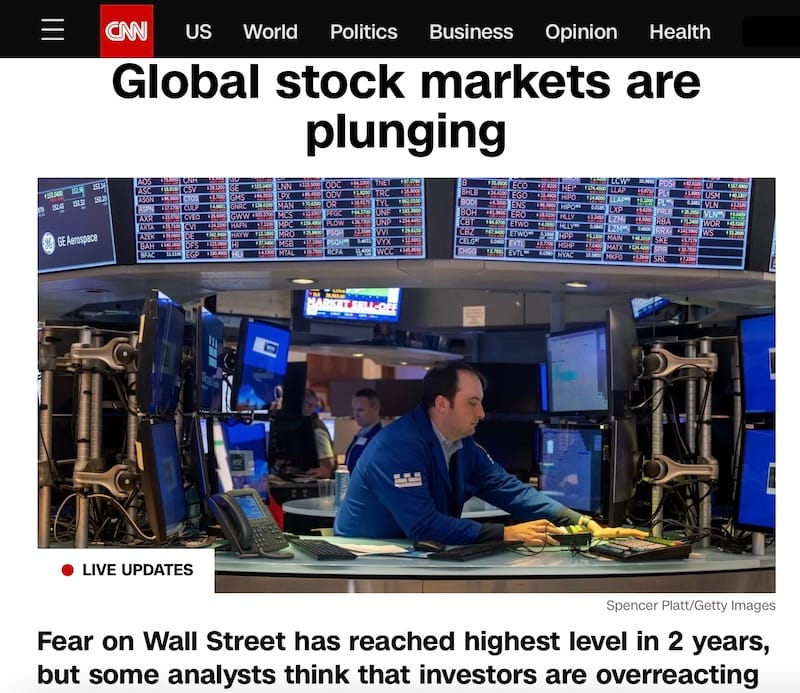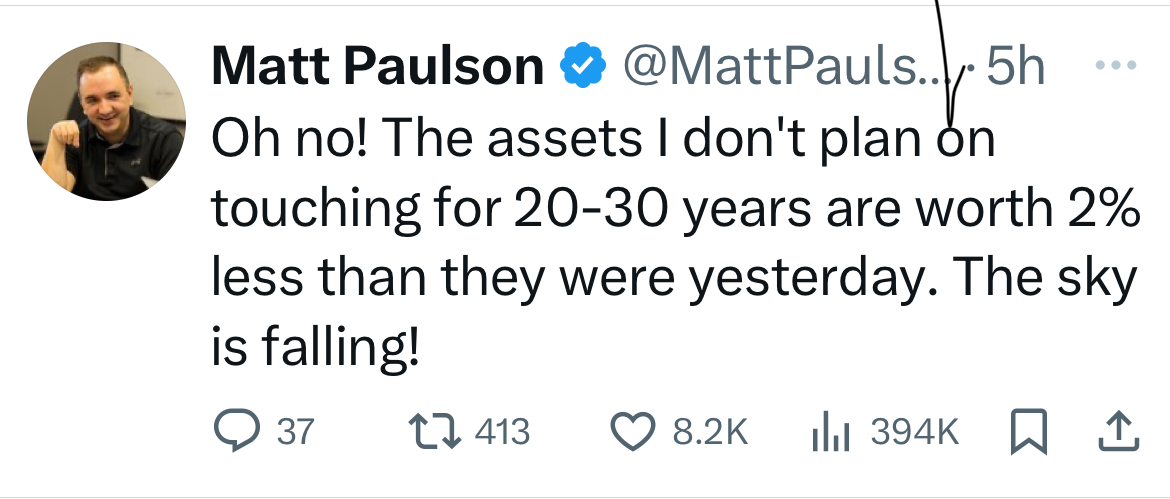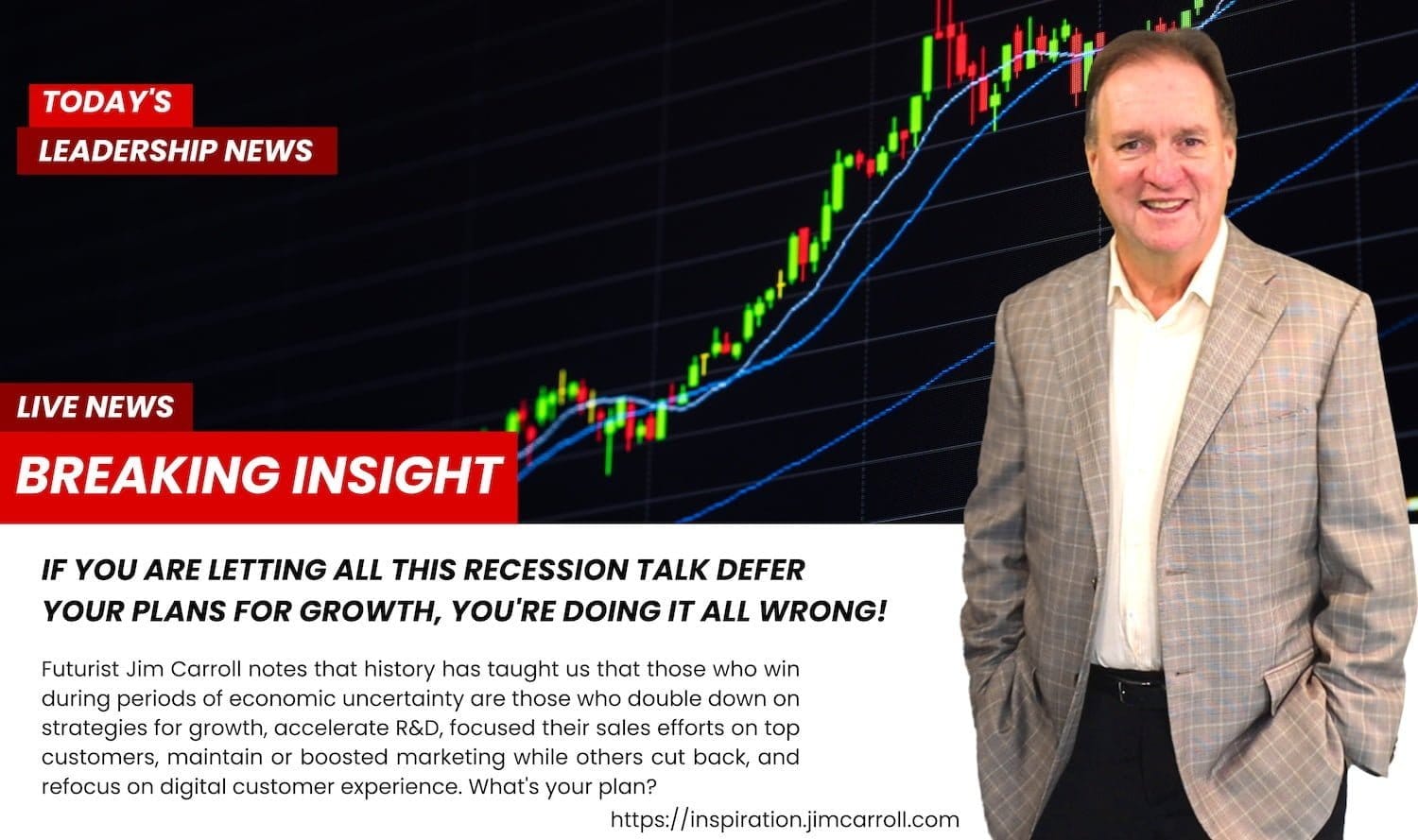"Markets are not trends!" - Futurist Jim Carroll
Some wild headlines yesterday:

In that context, I shared this image with one of my sons yesterday; he's an investment advisor and works in the wealth management industry. I imagine he will have a busy day with a bunch of scared clients.

All of this is to say that if you spend time studying the future and trends as I do, you'll know that the events of yesterday and perhaps the days to come are somewhat irrelevant. The market action is not related to trends; it's not related to the inevitability of the scientific, technological, and other trends that are unfolding tomorrow.
This bears repeating over and over and over again, and so with that in mind, I'll simply share a post from a few years ago when something similar happened. The advice on what innovators do to keep focused on the trends that define their future is powerful stuff. Read it, and plan accordingly.
Markets are not trends. Always remember that.
"If you are letting all this recession talk defer your plans for growth, you're doing it all wrong!" - Futurist Jim Carroll

History has taught us that those who win during periods of economic uncertainty are those who double down on strategies for growth, accelerate R&D, focus their sales efforts on top customers, and maintain or boost marketing while others cut back, and refocus on digital customer experience.
Ya, I'm focused on that recession thing again!
-------
I dug out a fascinating observation by professional services firm Grant Thornton on a survey they undertook to gauge the executive mindset on innovating despite uncertainty. More than 50% planned to double down on innovation in a downturn. A key observation?
“They don't intend to just retrench and try to ride it out. Most are counting on continued investment in technology and innovation to push them through.”
That echoes my findings. Last fall, I undertook a massive research effort involving a few thousand articles on how companies worldwide approached past periods of economic uncertainty and downward growth. The differences couldn't be starker.
The 'losers' or those with marginal or negative growth had these commonalities:
- they saw post-downturn heavy cost-cutting
- scaled back of R&D
- quality talent was lost
- strayed out of their core business to try to find a path forward
- took a wait-and-see approach
The winners? Positive growth?
- played on the offensive but selectively
- accelerated their R&D spend
- focused sales efforts on top customers
- maintained or boosted marketing while others cut back
- focused on digital customer experience
Need a strategy for innovating for growth in uncertainty? It's right there in those bullet points - and that's what I'm concentrating on in my "Innovating for the Upturn" keynote.
The opening observation in the keynote description?
Conventional wisdom would suggest we’d better hunker down, scale back, slow down, take it easy, be cautious, reduce spending, defer our actions, wait it out, take things slow, and put things on pause. But history tells us that doesn't work - because those who choose to relentlessly focus on growth are those who win.
History teaches us everything we need to know right now. I'll remind you of the simple fact that those who chose NOT to participate in the downturn - by doubling down on growth - saw significant returns, locking in gains of 13% CAGR in the years after the downturn compared to the ‘losers’ stalling at 1%. If you missed the post, it's here - "Opting Out."
Bottom line? It doesn't take a lot of leadership skill to 'slash and burn' - indeed, I believe it to be a sign of leadership weakness and failure. It takes tremendous effort and is a powerful leadership skill, to grow through uncertainty. That's real leadership success.
Futurist Jim Carroll has seen many scary economic headlines while people keep waiting for a recession that has yet to happen.

